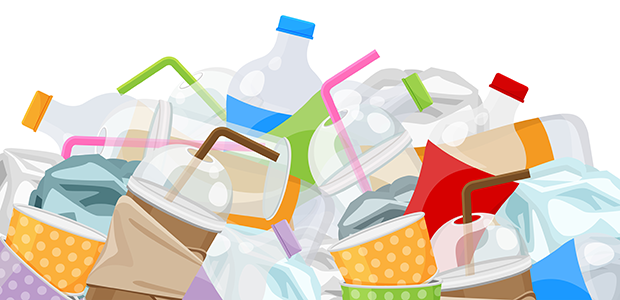
Why the Middle East is ahead of Europe on plastic waste
People worldwide are concerned about plastic waste in the environment, especially in the oceans.
This has led to campaigns to ban plastic, but a new study from The Netherlands, ‘Closing the Perception-Reality Gap for Sustainable Fresh Food Plastic Packaging 2024’, confirms that campaigns against plastics have led the public to make choices that increase environmental harm.
These campaigns would not be necessary if campaigners knew that technology already exists to deal with this problem at little or no extra cost. The technology is embedded in a masterbatch called d2w, which is incorporated at 1% w/w by manufacturers of plastic products so that the products self-destruct if discarded in the open environment. The technology causes the molecular weight of the plastic to reduce until it is no longer plastic, which is then assimilated by naturally occurring bacteria and fungi.
Although this technology is not new, it is still essentially in the startup phase because, until recently, there was no genuine concern about the environmental impact of plastic. However, this has become a big issue in the last 20 years, and governments and companies have been devoting a lot of thought to it. Policies to deal with the problem usually focus on ‘Reduce, Re-use, and Recycle’, and whilst they have made some improvement, they are inadequate because plastic is still getting into the open environment in very large quantities.
The government of the United Arab Emirates realised in 2007 that something more needed to be done, so they appointed experts to study the d2w technology. They were concerned about ensuring that it really did cause the plastic to biodegrade without any human intervention in conditions typically found in the open environment and that it did not create microplastics or other harmful residues. They reported to their government, and in November 2009, the Cabinet of the UAE approved UAE Standard 5009/2009 to make the technology compulsory for a wide range of plastic products. The governments of Saudi Arabia, Bahrain, and, most recently, Yemen have also adopted this policy.
The Yemen Government will not allow imports of short-life products made from or packaged in plastic unless they are made with d2w and will not renew the licences of factories found to be making short-life plastic products in Yemen without d2w. They have issued warning notices to factories, and Government inspectors and customs officers have been equipped with a hand-held device that can detect the presence of d2w in the plastic.
The Government of Yemen has many problems to contend with – not least the activities of the Houthis – but it still has time to care about its environment, and I congratulate it for that.
Yemen has a population of 28.5 million, producing more than a million tonnes of plastic products annually.
By contrast, lobbyists for competing commercial interests persuaded the members of the European Parliament’s Environment Committee in 2018 to pass legislation against ‘oxo-degradable’ plastic without a proposal from the EU Commission, any impact assessment or socio-economic analysis, and any dossier from their scientific experts, ECHA. This legislation has delayed the adoption of oxo-biodegradable technology in the EU, resulting in thousands of tonnes of ordinary plastic escaping into the European continent and its coastal waters, where it will lie or float around for decades.
Other governments around the world are considering oxo-biodegradable technology, but companies that advertise plastic as compostable are trying to persuade them that their type of plastic should be adopted instead. These companies are also working in Standards institutions, and they try indirectly to get their type of plastic adopted by using ‘the 180-day trick’.
They do this by inserting a 180-day time limit into draft Standards for proof of biodegradation. This short timescale is required by industrial composters and is appropriate for plastic designed to biodegrade in an industrial composting facility, but it is irrelevant to the main problem facing governments – namely, plastic in the open environment that cannot be collected for composting or anything else.
The only way to prevent plastic from accumulating in the open environment for decades is to make it with d2w technology.

